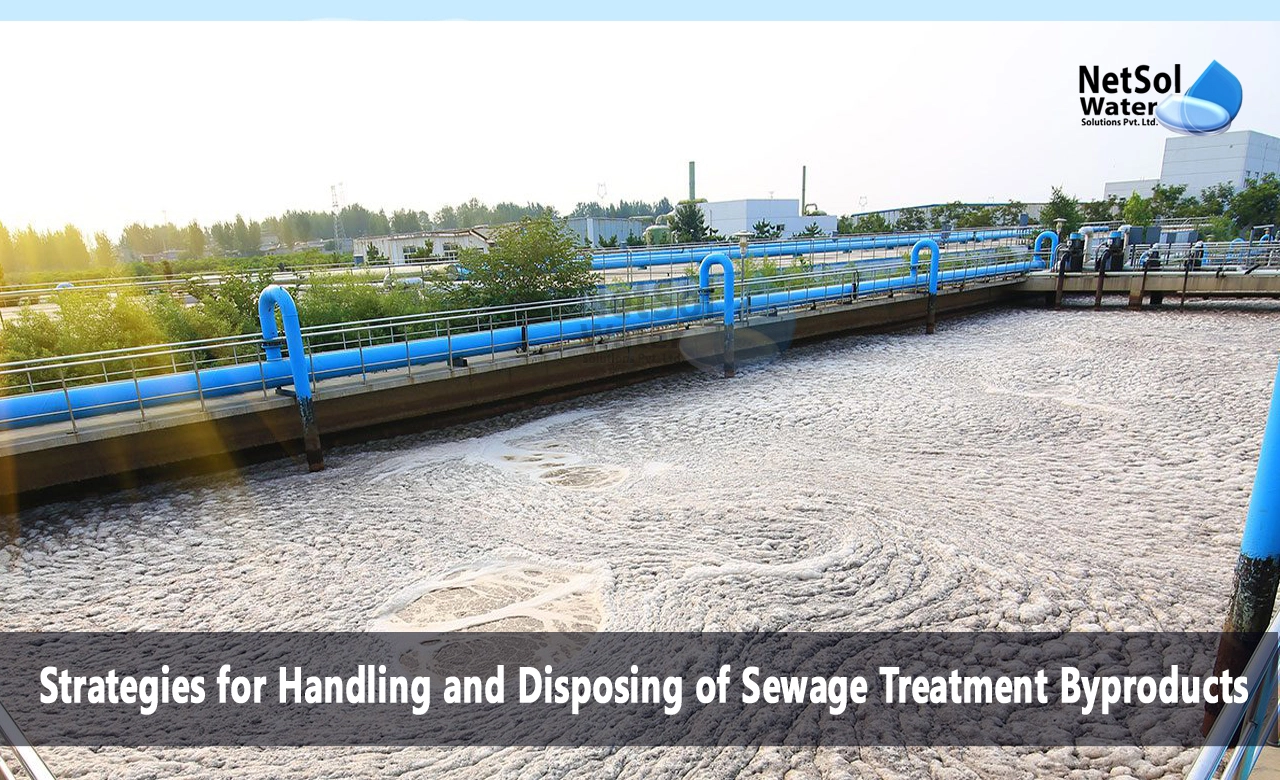How to Handle and Dispose of Sewage Treatment Byproducts?
Sewage treatment plants produce two main byproducts - sewage sludge and effluent. Sewage sludge refers to the residual, semi-solid material left over after the treatment of wastewater. The effluent is the treated wastewater that flows out of the sewage treatment plant. Both of these byproducts need careful handling and disposal to avoid environmental contamination.
Sewage Sludge Handling
Sewage sludge is the thick, nutrient-rich organic matter extracted from the wastewater during the treatment process. It contains useful nutrients like nitrogen and phosphorus but also concentrated levels of heavy metals, organic pollutants, and pathogens if the wastewater is from industrial or hospital sources. Here are some ways to handle sewage sludge:
1- Composting - Composting involves combining the sludge with bulking agents like wood chips to facilitate aeration and adjusting moisture levels to encourage microbial breakdown of organic matter. Proper composting destroys pathogens, reduces odors and yields stabilized organic matter that can be used as fertilizer or soil amendment.
2- Anaerobic Digestion - This process encourages decomposition of sludge in oxygen-free tanks, yielding biogas for energy generation. The stabilized residue can be used as fertilizer. This also reduces sludge volume and inactivates pathogens.
3- Alkaline Stabilization - Adding alkaline material like lime or cement kiln dust can raise the pH level enough to kill microorganisms and immobilize heavy metals in the sludge. This reduces odors and makes sludge safer for disposal.
4- Solar Drying Beds - Drying sludge on sand beds utilizing natural solar energy minimizes transportation costs to the disposal site. However, drying times can be long if weather conditions are not favorable.
Sewage Sludge Disposal
Common methods to safely dispose of sewage sludge include:
1- Landfills - Stabilized sludge can be transported to municipal landfills for safe burial and containment. This prevents contamination of local water bodies or soils.
2- Incineration - High temperature burning destroys all pathogens and toxic organic compounds in sludge, reducing it to an inert ash for landfilling. However, this is an energy-intensive process.
3- Surface Disposal - Dedicated sludge-only land disposal sites can be operated to isolate the stabilized sludge from environmental contact or public access. Regular monitoring is required.
4- Land Application - Stabilized municipal sludge low in heavy metals can be beneficially reused as a plant nutrient and soil amendment on agricultural land, forests, public parks, or to reclaim disturbed land. This is a sustainable option but site management is crucial.
Effluent Handling and Disposal
Effluent is the treated wastewater flowing out of the treatment plant after suspended solids and other contaminants have been removed. Effluent disposal methods include:
1- Surface Water Discharge - Treated effluent can be discharged into surface water bodies like rivers, lakes or estuaries after confirming compliance with national water quality standards. This assists with river flows.
2- Land Disposal - Effluent can be piped to dedicated land disposal sites specially lined with impermeable barriers to prevent groundwater contamination from nutrients, salts and microbes. Site rotation is required.
3- Underground Injection - In areas with suitable geology, treated effluent can be injected deep underground into porous rock formations that are geologically isolated from groundwater flows or aquifers. This reuse option is expensive.
4- Water Reuse - The nutrient-rich effluent has potential for recycling after disinfection. It can be used for irrigation, industry processes, toilet flushing or even drinking after advanced purification. This enables water conservation.
As seen above, there are well-established technologies available for the safe handling and disposal of sewage byproducts that emerge from the wastewater treatment process. Implementing these strategies is vital where sewage infrastructure exists, to protect our vulnerable water resources and ecosystems from contamination.
Do you need an advice or assistance on selecting the best water and waste water treatment unit? We have solutions for all your problems!
Let us know your problem, our experts will make sure that it goes away.
For an assistance or related query,
Call on +91-965-060-8473 Or write us at enquiry@netsolwater.com



